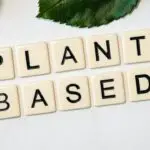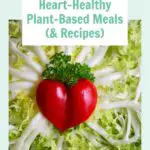Vegetarianism, veganism, and pescatarianism are all dietary and lifestyle choices that involve the exclusion of certain animal products. These choices may be motivated by a variety of factors, including ethical concerns, environmental concerns, health considerations, and personal preferences.
In this post, we will look at what each one is and how they are different. Then look at the pros and cons of all of these plant-based diets.

Vegetarianism
Vegetarianism is a dietary and lifestyle choice that involves the exclusion of meat, poultry, and fish from one’s diet.
There are several different types of vegetarianism, including lacto-ovo vegetarianism (which includes dairy and eggs), lacto vegetarianism (which includes dairy but not eggs), and ovo vegetarianism (which includes eggs but not dairy).
Vegetarians may choose this lifestyle for a variety of reasons, including ethical concerns about animal welfare, environmental concerns about the impact of animal agriculture on the planet, and health considerations such as the desire to reduce the risk of certain diseases.
Veganism
Veganism is a way of living that seeks to exclude the use of animals for food, clothing, or any other purpose as much as possible.
This means that vegans do not consume any animal products, including meat, dairy, eggs, and honey. They also avoid using products made from animals, such as leather, fur, and wool.
Veganism is often motivated by ethical concerns about animal welfare and the exploitation of animals, as well as environmental concerns about the impact of animal agriculture on the planet.
Some vegans also choose this lifestyle for health reasons, as a vegan diet can be rich in nutrients and low in saturated fat and cholesterol.
Pescatarianism
Pescatarianism is a dietary and lifestyle choice that includes the consumption of fish and other seafood, but excludes the consumption of other types of meat. Pescatarians may also consume dairy, eggs, and other animal products.
Pescatarianism may be motivated by a variety of factors, including ethical concerns about the treatment of animals in the meat industry, environmental concerns about the impact of animal agriculture on the planet, and health considerations such as the desire to reduce the risk of certain diseases.
Some pescatarians choose this lifestyle as a way to incorporate more seafood into their diet while still excluding other types of meat.
Vegetarian vs Vegan vs Pescatarian – Pros and Cons
There are pros and cons to each of these dietary and lifestyle choices. One potential benefit of vegetarianism and veganism is that these diets can be rich in nutrients and low in saturated fat and cholesterol, which may help to reduce the risk of certain diseases such as heart disease and certain types of cancer.
Vegetarian and vegan diets can also be more environmentally sustainable than diets that include animal products, as animal agriculture has a significant impact on the planet in terms of water usage, land use, and greenhouse gas emissions.
However, vegetarian and vegan diets may also be more challenging to follow, as it can be more difficult to get all the nutrients the body needs from plant-based sources alone. It may be necessary for vegetarians and vegans to carefully plan their meals to ensure that they are getting enough protein, iron, calcium, and other nutrients that are commonly found in animal products. Supplementation with certain vitamins and minerals may also be necessary for some individuals.
Pescatarianism may be a more balanced and sustainable dietary choice than diets that include meat, as fish and seafood can be a good source of protein, omega-3 fatty acids, and other nutrients while also having a lower environmental impact than land-based animal agriculture.
However, there are also potential downsides to pescatarianism, such as the potential for mercury contamination in some types of fish, as well as ethical concerns about the treatment of seafood in the fishing industry.
Ultimately, the decision to follow a vegetarian, vegan, or pescatarian diet is a personal one that depends on an individual’s values, beliefs, and goals.
See also:
Lance has been passionate about the plant-based diet and we have been following a whole food plant-based diet for over 5 years. We focus on health, natural healing, weight management, animal rights, and the health of the planet and environment by focusing on whole plant-based foods and sustainable practices.
Learn more at the About Me page and follow on social media at the links below.





